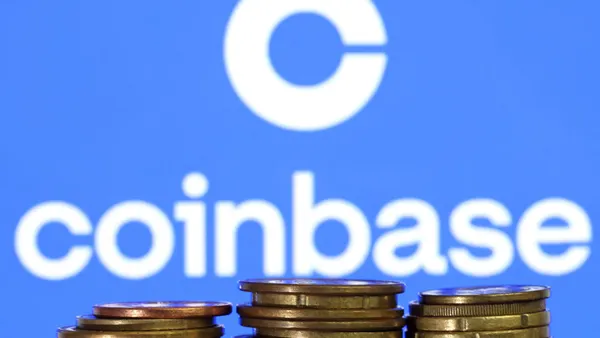Banks can dabble in cryptocurrency activities without receiving prior approval, the Federal Deposit Insurance Corp. announced Friday.
Still, banks “must adequately manage the associated risks” of engaging in crypto-related activities, according to the Financial Institution Letter, or FIL-7-2025.
The guidance rescinds previous guidance, FIL-16-2022, issued under then-chair Martin Gruenberg, which required financial institutions to notify the FDIC before engaging in crypto-related activities.
“With today’s action, the FDIC is turning the page on the flawed approach of the past three years,” said FDIC Acting Chairman Travis Hill in a prepared statement. “I expect this to be one of several steps the FDIC will take to lay out a new approach for how banks can engage in crypto- and blockchain-related activities in accordance with safety and soundness standards.”
The FDIC under Hill, along with several other federal banking regulators in the second Trump administration, has positioned itself as more amenable to crypto than the regulators in charge under President Joe Biden.
Ahead of taking the agency’s helm in January, Hill said that “there is no place at the FDIC for anyone who has pushed — explicitly or implicitly — banks to stop serving law-abiding customers.”
Last week, in a letter delving into the FDIC’s plans to stop regulating for reputational risk, Hill called out digital assets and noted that the FDIC had previously been “closed for business” to any bank expressing interest in blockchain technology.
Under Hill, the FDIC is “actively working on a new direction on digital assets policy,” he wrote.
The Commodity Futures Trading Commission on Friday also modified its approach to crypto, announcing that derivatives from digital assets wouldn’t be treated differently than other derivatives.
Both changes follow close on the heels of guidance issued by the Office of the Comptroller of the Currency earlier in March affirming that national banks can engage in certain cryptocurrency-related activities.
“As with all other activities, FDIC-supervised institutions should consider the associated risks — including, but not limited to, market and liquidity risk; operational and cybersecurity risks; consumer protection requirements; and anti-money laundering requirements — and should engage with their supervisory team as appropriate,” the FDIC asserted in the FIL-7-2025.
The agency will continue to work with the President’s Working Group on Digital Asset Markets, created in January via executive order, and it expects to issue further guidance on banks’ crypto-related activities in the future, the FDIC said.











